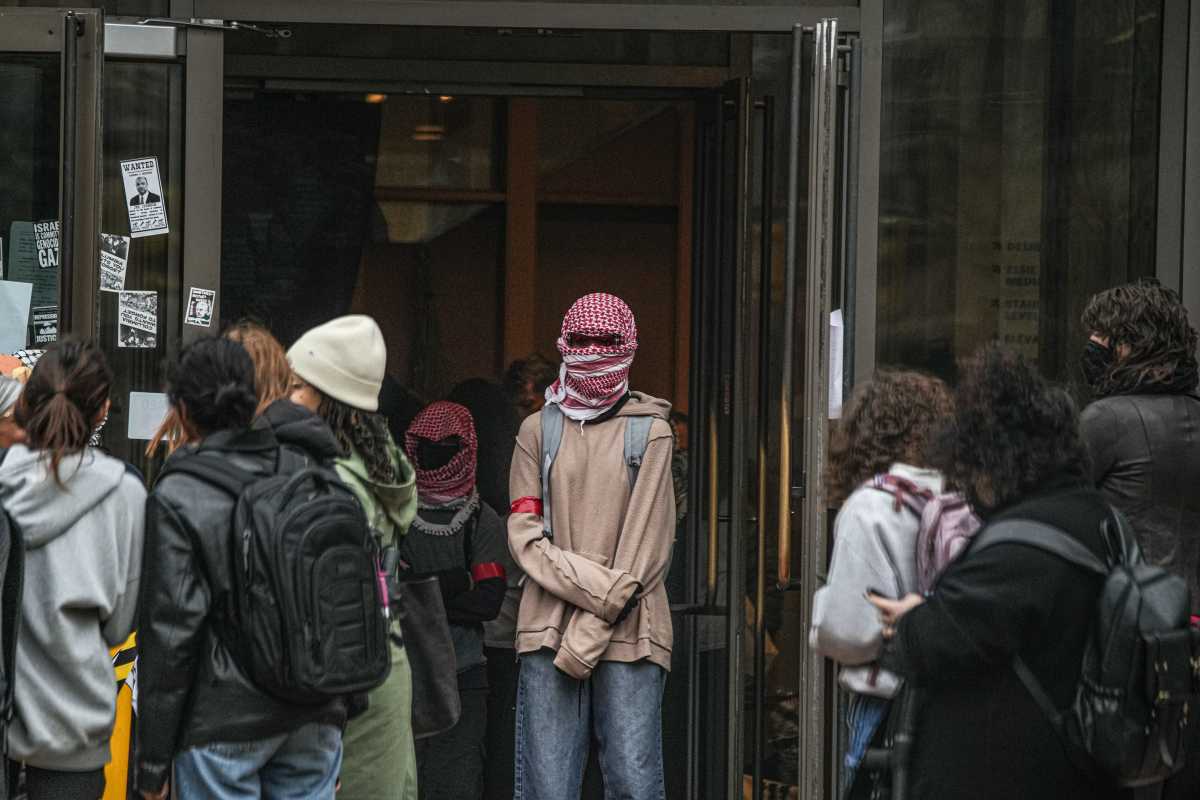Colonialism not only deprives a society of its freedom and its wealth but, of its very character, leaves its people intellectually and morally disoriented.” (Franz Fanon, 1966).
Several members of Garifuna communities in Belize and the diaspora, as well as many other Belizeans, have expressed through radio, TV and social media, their outrage at the recent news that the Norwegian Cruise Lines’ investment at Harvest Caye is proposing to include the dügü as part of its marketing strategy to attract cruise tourists to Southern Belize.
For those who are not aware, the dügü is the most outstanding feature of Garifuna spiritual life. This sacred ritual is conducted as a private affair for families to commune with the spirits of their ancestors. It is not a public cultural event.
Family members who are called by the ancestors through the buyei, (shaman) regardless of their profession, occupation or standard of education, usually feel obligated to travel to the dabuyaba (the sacred temple) from wherever they reside in Belize or foreign countries to participate in this week-long ritual. The ritual involves sharing of food between living and deceased family members in a festive and intimate space. It also involves traditional chanting, singing and dancing to certain drum rhythms that hypnotize participants to uncontrollable danced possessions or a trance-like state that often resembles a mild or intense seizure. Persons in such states serve as a medium through whom the spirits of deceased parents, grandparents, great grandparents or other ancestors deliver wise counsel, stern admonitions or positive affirmations for family reconciliation and healing of illnesses or other adversities. By the end of a dügü, family members are often united in ways that they might have never experienced before, and return home feeling healed, protected and empowered to face the challenges of their lives.
The deep secrets of their unique, powerful hybrid Afro-indigenous spirituality have enabled the Garinagu to survive oppressive conditions and attempts to exterminate their culture over several centuries. Historically, Christian missionaries had no compunctions in their attempts to destroy the core beliefs of African and indigenous peoples. From as early as 1665, Jesuit priests in St. Vincent referred to the dügü as idolatry. By that time, core beliefs and consciousness of enslaved Africans and indigenous peoples, and their connections with their land and ancestors were being destroyed by Christianity for over a century and a half. The sacred books of the Mayas had long been destroyed. The lives of African and indigenous peoples were threatened for maintaining their traditional beliefs.
In 1685 the French King decreed through Code Noir that all Negroes in its territories (including the Garinagu of St. Vincent) must be converted to Roman Catholicism and any other religion or native traditions must be strictly forbidden. Similar decree was made for Spanish territories. This aspect of the colonizing process explains why people from early French and Spanish territories (like the Garinagu and Mestizos and Mayas of Belize) became Catholics and those from British territories (like the Creoles in Belize) became Anglicans and have largely remained so to this day.
While the physical labor of the enslaved and colonized people enriched white masters, their minds were “civilized” by white missionaries to behave like white Europeans and adore white saints to get to a white heaven where the afterlife is also spent with a deity portrayed as white. The Garinagu had to remain solidly grounded and cohesive to survive all that and maintain the secrets of their spirituality. Their saints were also their ancestors, while their seiri defined their own heaven.
In Belize, numerous attempts were also made to ridicule Garinagu culture to extermination. Catholic priests often used the pulpit to condemn the dugu and called for the people to be punished for performing it. In the 1840s, Methodist missionaries were also interested in stamping out this practice.
Soon after the Garinagu arrived in Belize, suspicious British rulers outlawed its practice and planted seeds of division among the enslaved Africans to ensure that both Afro-descendant groups in the Belize settlement remained physically and psychologically separated. It was why the laws of early Belize settlement forbade Garinagu from staying in Belize Town. They had to remain south of the Sibun River where their communities have been ever since.
Because of their freedom long before slavery was abolished, the Garinagu, unlike most other Afro-descendant groups throughout the Americas, were able to creatively find ways to accommodate Christianity while maintaining their ancestral spirituality, thus ensuring its survival to this day.
It was only in recent decades, after Jesuit anthropologists analyzed the merits of the dügü, that the church softened its stance and accommodated this ritual. Now, even Garifuna Catholic and Anglican priests and nuns participate. It is remarkable that the dugu has withstood centuries of threats.
The recent notion that this sacred core of Garinagu culture would be considered to provide a photogenic cultural entertainment for cruise tourists suggests that in their quest for financial gain, the planners must have become morally disoriented. The idea that cruise ship tourists would descend in thousands to be entertained by the performance of a sacred ritual, or parts of it, is most insulting and condescending.
Such mindset is often revealed through the current neocolonialist paradigm in which weak, visionless and naive leaders pawn out their countries as a source of inexpensive supply of native entertainment, labor and natural resources for the greater benefit of foreign investors. Under such leaders, national development plans (if they at all exist) are never meant to spark internal development or facilitate the growth and success of native Belizean businesses. Rather than provide incentives for enabling the people to develop a vibrant and productive local economy at all levels, the practice of these leaders is to engage in clandestine negotiations and use authoritarian means to exclude large segments of the population from effective political and economic ownership of their resources.
This development paradigm flows from colonial development practices in which foreign investors (predominantly of Euro-American descent) are not only favored by the ruling class but are provided with disproportionately attractive incentives to generate and export their wealth while the “natives” remain subservient. Belizeans have seen this development paradigm repeatedly in past examples such as the Chalillo Dam (where several jobs were promised), the granting of license to Jamaican and Guatemalan fishermen as well as Malaysian loggers to harvest these resources in southern Belize, sweetheart deals involving BTL, corrupt DFC loans, the raping of rosewood from forests in Toledo while excluding the Mayas from deriving substantial benefit, the relative lack of native Belizean involvement in subsidized banana production that heavily rely on cheap labor imported from neighboring republics, and several other “investments” where the participation of the native Belizeans is limited to providing inexpensive labor to foreign investors who accrue far more substantial benefits.
If not carefully planned and rigorously monitored, the cruise tourism industry can limit Belizean participation to meagerly paid jobs and destroy the quality of communities and sites visited. That aside, and considering the centuries old struggles of Garinagu to ensure the survival of their spirituality, it must be loudly proclaimed that there shall be NO desecrating the sanctity of the dugu for frivolous entertainment of tourists or anyone else. Not now, not ever. There are various other aspects of the culture (arts, crafts, music, food etc.) that could benefit part of the tourism industry. NICH, tourism agencies other policymakers must take note and in good faith openly consult with the people.
Perhaps, though, the Garinagu might want to imagine an alternate version of the dügü. Realizing that leadership is critical to national development, and that leadership decisions can have positive or destructive impact on any nation, maybe the time has come to deploy a high powered team of buyeis to the National Assembly in Belmopan for a grand dügü. The real development problem in Belize is the crisis of leadership. Let the buyeis smoke the entire chamber and all Ministries with potent incense while the heart drums call forth the most powerful of ancestral spirits to chastise greedy and corrupt Ministers, area representatives and government officials. Let the spirits possess and vibrate to a frenzied trance (backs on the floor, hands and feet vibrating and kicking skyward), all those who use their office to satisfy their own selfish gain. Let the spirits purge them to new consciousness of genuine service for the people’s development. Let the buyeis call forth spirits to lash those who have bankrupted the nation’s coffers until they wail for forgiveness, make reparations and emerge transformed. For those who disrespect women, Afro-descendant and indigenous peoples, let them bawl as they owenha in vigorous vibratory trance as they hear a chorus of scolding voices of angry ancestral spirits. For those who illegally rape forests, steal lands and national assets for private and family gain, let the ancestral spirits whip them to screaming pain as they roll over and over until they learn the age old commandment, “Thou shalt not steal”.
Let the convergence of the Supreme Being and all the most powerful ancestral spirits, joined also by the spirits of Chatoyer, George Price and Philip Goldson and others, chastise, cleanse, heal and transform members of the National Assembly. For the few genuinely honest ones, let the Supreme Spirit keep them grounded against the wolves.
Keep dügü out of tourism, but maybe it is time to do a special kind of dügü to root out shameless greed, corruption, racism and deeply embedded colonial attitudes that have retarded sustainable development of our young independent nation.
mavila2@aol.com

























